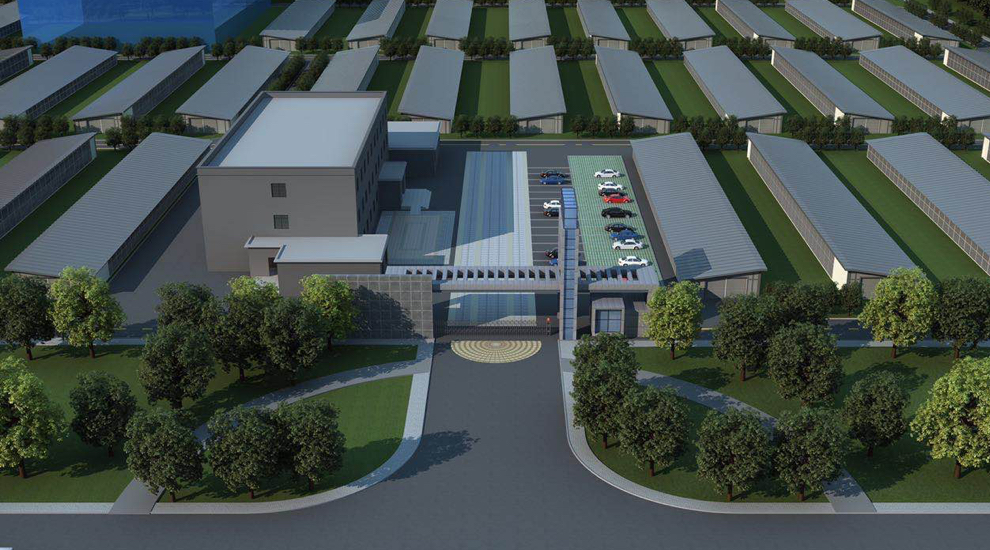
Beijing-based Bitcoin ASIC hardware producer and mining giant, Bitmain, announced on November 5 that it’s in the process of building a major data center complex in the northwest of China. The company says the facility will be capable of consuming up to 135 megawatts of power and is set to become the second largest data center in the world.
According to a press release published by Bitmain:
“[The facility] is specially designed for high-performance computing and, considering the interest of most investors in the data center, mining of cryptocurrencies such as Bitcoin will be its major application.”
Xinjang: Cold, Dry Climate is Ideal
The data center is to be located near the city of Karamay in the northwestern province of Xinjiang, which is the largest Chinese administrative division in the country. According to Bitmain’s international marketing manager, Nishant Sharma, Xinjang was chosen for its “bitterly cold and dry climate,” which is ideal for bitcoin mining, and for its access to government-supported, low-cost wind and solar electricity.
Additionally, Sharma noted:
“The government is supportive of new technologies that can develop the region's economy and generate more employment opportunities.”
The facility will consist of 45 dust-free buildings with advanced cooling systems. If these were to be filled completely with Bitmain’s most advanced mining equipment — the AntMiner S9 — calculations by Bitcoin Core and Blockstream developer, Matt Corallo, suggest the data center could theoretically produce over 1400 petahash per second, almost three-quarters of the estimated hash rate currently on the Bitcoin network.
This upper-bound estimate seems unlikely to become reality, however. Sharma noted that Bitmain owns “a very small share” of the data center. The rest of the facility is owned by different investors.
“We hope it will be used for various purposes that an efficient and powerful data center can be used for,” Sharma told Bitcoin Magazine. “We do not know what percentage of investors would use it for mining bitcoin, altcoin — or for even mining [at all]. Frankly, I wouldn't assume that the entire facility will be dedicated to bitcoin mining.”
Bitmain could not disclose how many investors are involved with the project, nor could the company reveal any names.
Centralization Concerns
As the announcement of the data center first circulated through social media, the news was not welcomed equally by everyone. For some, the mock-ups published by Bitmain serve as a stark reminder of the degree of mining centralization that has developed over the past years; well over half of all hash power on the Bitcoin network is currently controlled by less than half a dozen Chinese mining pools. With the establishment of the data center, an increasing share of hash power could become more geographically centralized within the country as well.
The announcement prompted Bitcoin Core developer, Peter Todd, and Vice Chairman of The BitFury Group, George Kikvadze, to voice concern that the data-center could represent a potential target for adversarial forces or governments. Bitmain refrained from commenting on this issue.
The company did note that designs for the facility will be made “open source” after the data center is built. This could help other bitcoin miners achieve a similar level of efficiency, Sharma explained to Bitcoin Magazine.
“We will release the plans or other details that make this data center as effective as it is planned to be. We have gathered this knowledge from operating data centers for bitcoin mining on a very large scale and in various locations. We will release these details so everyone can use our knowledge to build similarly efficient data centers for bitcoin or altcoin mining.”
Bitmain’s facility is currently under construction. It was originally planned to be completed in about a month from now, but the unexpectedly cold winter in Xinjiang has delayed the process. Bitmain does estimate that the facility will be completed by end of this year.
0 Response to "Bitmain Reveals Plans for Major Bitcoin Mining Data-Center in Northwestern China by: Aaron van Wirdum - Bitcoin Magazine"
Post a Comment